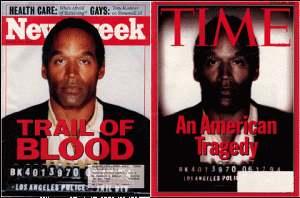Until something with Herrera changes, though, you can tell those cats to grow thumbs and learn to use a can opener themselves.
I don’t know how I sleep some nights. I mean, between representing all those people I “know” are guilty and having freed so many people on “technicalities” I’m a pretty reprehensible person. That’s what people tell me. Essentially.
I mean, they don’t tell me directly. They tell me things like they “couldn’t do” my job. Or that they “would have a hard time” representing somebody they “knew” was guilty. Plus, they use the term “technicality.” As in “so, he got off on a technicality?”
Technicality. This sounds like a bad thing. Like somebody “got away” with something. Somebody like, for instance, Drew Peterson. That guy might get off on some sort of technicality. Never mind the fact that they changed the state law just to try and prosecute him. Or that the government’s own experts originally said she wasn’t murdered. It’s always a technicality.
Don’t get me wrong. We’re on the same team as far as wanting Peterson locked up. We have different reasons, though. You want him locked up because you think he killed a half-dozen people. I want him locked up because he was an annoying, egotistical, loudmouthed wind-bag before he was taken into custody.
If Peterson walks, its going to be blamed on that too-often-used technicality of being not guilty. By that, I mean it’s that one technicality where either the state can’t/won’t/doesn’t prove him guilty beyond a reasonable doubt or that he didn’t actually do what they say he did. Unfortunately it is the state’s burden to prove these things… that poor, poor, poor state and their nearly insurmountable burdens.

We should do away with that technicality of forcing the state to prove people guilty. Then we could lock up all those people we “know” are guilty, right? While we are at it, we should eliminate some of those other pesky technicalities like the Bill of Rights and the State Constitution. If we got rid of all that stuff, we could probably lock this Peterson fella up without the trouble of a trial. Maybe O.J., too.
Believe it or not, I sleep fine at night. I’m with you on wanting to eliminate some of the technicalities and bringing “truth” back to the system, though. Especially when we’re talking about the technicalities that prosecutors don’t gripe about. How come nobody ever asks me about those technicalities?
Wait. What’s that? Are we not on the same team anymore? What sort of technicality is that? If the burden of proof and Bill of Rights are a defense attorneys’ favorite “technicalities” there is a LONG list of technicalities a prosecutor loves. Technicalities like that one the Supreme Court invented in the case of Herrera v. Collins.
You know, it’s the one where you can be completely, truthfully actually not guilty and you still can’t appeal. I mean, do you ever wonder what happens if you are charged with a Federal crime you absolutely didn’t do, but the prosecutor convinces the 12 jurors that you did? Maybe somebody wrongfully identifies you. It does happen.
Now you’re locked up, they’re about to throw away the key, and you’re begging your lawyer to appeal? No sweat, right? Your lawyer is going to appeal this thing and show the Federal Appeals Court how you’re actually innocent. You’ll be out by lunch, right? Maybe out by dinner at the latest.
Wrong.
You’re going to appeal that thing and the appeals court is going to use the Herrera case to tell you that a “freestanding claim of actual innocence is no basis for appellate relief.” Do you know what that means? I do. It means that the United States Supreme Court says you can’t appeal just because you’re not guilty. Seriously. Let me say that again. You can’t appeal a case in Federal Court just because you’re actually not guilty. That appeals court doesn’t care that you’re not guilty and have starving cats waiting for you to get home. Hell, those kittens can’t open the Meow-mix themselves. Until something with Herrera changes, though, you can tell those cats to grow thumbs and learn to use a can opener themselves.
It’s not like this is some obscure thing that courts ignore, either. It’s used by prosecutors on appeal all the time. I’m sure people ask Federal Appeals Prosecutors how they sleep at night, too. Them and their technicalities!
Herrera is but a relative newcomer to the prosecutor technicality arsenal. They’ve got technicalities going back hundreds of years. Ever hear of felony murder? It’s the one where, when you’re driving to the 7-11 for some Funyons and Redbull and your buddy in the passenger seat thinks it would be funny to steal a ho-ho by telling the clerk he’s got a bomb. He’s telling you this as you’re driving there and you guys laugh thinking it’s funny. When your buddy hands the clerk a note saying “I have a neutron bomb and I’m going to use it unless you let me take this ho-ho, kthnxbye” and starts to walk out, the clerk guns him down from behind.
The clerk kills the robber (your pal). Justice done? Not yet. You drove him there knowing he was going to “rob” the store. Your taking part by driving him makes you just as guilty of a robbery as if you had walked in with a gun and stolen all the cash. Even better, your’e also guilty of murder. The technicality of felony murder means you’re looking at decades, if not a lifetime, behind bars because anybody died for any reason while you were committing a felony. Don’t forget to smile for your mug shot.
I’m not saying you should have much compassion for somebody who thinks it’s funny to rob the convenience store. I am saying that the punishment should fit the crime, and you shouldn’t ever be found guilty of Murder on such a weird technicality. Oddly, people don’t ask me about this technicality.
And, don’t even get me wound up about possession of drugs. You know how “possession” requires that you actually possess something? Wrong. Illinois courts tell us that possession can be something called “actual” possession. The flipside to this, of course, is possession doesn’t have to be “actual” possession. You can possess something without actually possessing it? Sweet!
Makes perfect sense. So much so that I’m headed to the bank right now with a whole bunch of money I don’t “actually” possess. If the bank gets snotty, I’m going to tell them that I “constructively” possess about a million dollars I’d like them to credit to my account. When the bankman tells me I can’t deposit cash I don’t possess, maybe I’ll ask him how he sleeps at night refusing my deposit on such a technicality. After all, I need to get this fake money on my account so I can go buy that cat food my felines so desperately need. This is a matter of cat survival.
I don’t know what’s going to happen in Peterson’s case. Maybe it ends with a “technicality” and maybe it doesn’t. I suppose we’ll all find out soon enough. I just know that the word “technicality” is a bad word to describe complex aspects of the law. I also know that no cats were actually harmed in the writing of this post, and that, even though I don’t have any cats, I wish all cats of the world a healthy, hearty meal tonight.
